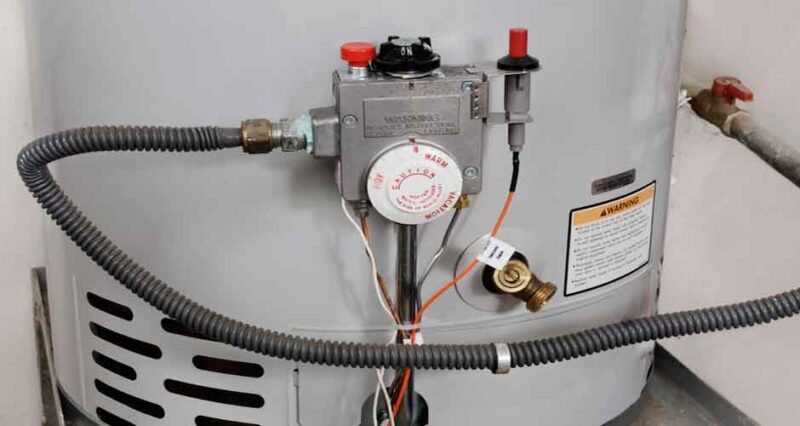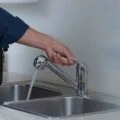
Picture this: it’s a chilly winter morning, and all you crave is a warm, refreshing shower to kickstart your day. But wait! You step into the bathroom only to be greeted by a blast of icy water. Sound familiar? If you’re a homeowner, you’ve likely experienced the crucial role that water heaters play in your daily comfort.
The most reliable local plumbers in Point Cook know that your water heater must always be in top-notch condition. That’s why we’ve compiled the top 12 frequently asked questions (FAQs) about water heaters to shed light on their functioning, repairs, and maintenance.
1. What Type of Water Heater Do I Have?
Understanding the type of water heater in your home is the first step towards effective maintenance and troubleshooting.
- Conventional Tank-Type:These heaters store hot water in a large tank, ready for use whenever you need it. They’re reliable and suitable for households with moderate hot water demands.
- Tankless (On-Demand):Unlike traditional tank-type heaters, tankless heaters heat water on-demand as it flows through the unit. They’re more energy-efficient since they don’t incur standby heat loss, but they may have higher upfront costs.
- Heat Pump Water Heater:These heaters extract heat from the air and transfer it to the water, making them highly energy-efficient. They work best in warm climates and can significantly reduce energy bills over time.
2. How Does a Water Heater Work?
In simple terms, a water heater heats and stores water for your household use. When you turn on a hot water tap, cold water enters the heater’s tank through a dip tube.
- For Conventional Tank-Type Heaters:The heating element warms the water inside the tank to your desired temperature. As hot water is used, cold water enters the tank to maintain a constant supply.
- For Tankless Heaters:A heat exchanger rapidly heats the water as it flows through the unit, thereby providing a continuous supply of hot water without the need for storage.
3. What Size Water Heater Do I Need?
Selecting the right-sized water heater ensures that your household’s hot water needs are met efficiently. Factors to consider include:
- Number of Occupants
- Hot Water Usage Patterns
- Heater Efficiency
4. How Can I Increase My Water Heater’s Efficiency?
Improving your water heater’s efficiency not only saves energy but also prolongs its lifespan. Here are some tips:
- Schedule an annual maintenance with plumbers in Hoppers Crossing
- Insulate Hot Water Pipes in your home
- Lower the thermostat temperature
5. What Should I Do If My Water Heater Is Leaking?
A leaking water heater can be concerning, as it may indicate internal corrosion, a faulty pressure relief valve, or loose connections. Take the following steps:
- Turn Off Power:If you have an electric water heater, first switch off the power at the circuit breaker. However, for gas heaters, you need to turn off the gas supply valve.
- Inspect for Leaks:Check for visible signs of leakage around the tank, pressure relief valve, or piping connections.
- Contact a Professional:If you’re unsure about the cause of the leak or how to address it safely, contact a licensed plumber in Point Cook for inspection and repairs.
6. How Long Does a Water Heater Last?
The water heater’s lifespan varies depending on factors such as usage, maintenance, water quality, and the type of heater. On average, conventional tank-type heaters last 8 to 12 years, while tankless heaters may last up to 20 years with proper maintenance.
7. Why Is My Water Heater Making Strange Noises?
Unusual and strange noises from your water heater can indicate underlying issues, such as sediment buildup, mineral deposits, or loose heating elements. Common noises include popping, rumbling, or banging sounds.
8. Can I Repair My Water Heater Myself?
Water heaters are complex electrical equipment. Therefore, it’s better to leave the installation, maintenance, and repairs to professionals. Therefore, always have a licensed plumber in Hoppers Crossing in your speed dial and call them when needed rather than opting for DIYs.
9. How Often Should I Flush My Water Heater?
Flushing your water heater regularly is essential for maintaining optimal performance and prolonging its lifespan. Over time, sediment and mineral deposits can accumulate in the tank, reducing heating efficiency and increasing the risk of corrosion. Most manufacturers recommend flushing the tank at least once a year to remove sediment buildup. This simple maintenance task can improve energy efficiency, reduce operating costs, and prevent premature heater failure.
Always prefer to hire a professional plumber in Point Cook for thorough maintenance and inspection. A plumber can ensure the flushing process is performed correctly and identify potential issues.
10. What Should I Do If My Water Heater Stops Heating?
Discovering that your water heater isn’t producing hot water can be frustrating, especially during colder months. Before calling a professional plumber, try the following troubleshooting steps:
- Check Power Supply:For electric water heaters, ensure that the circuit breaker hasn’t tripped. Gas heaters should have a lit pilot light or ignition system.
- Inspect Thermostat Settings:You must then proceed to verifying the thermostat temperature and ensure that it hasn’t malfunctioned. Adjust the settings if necessary and monitor the heater’s response.
- Test Heating Elements:Electric water heaters have heating elements that may wear out over time. Therefore, always test the elements using a multimeter and replace any faulty components.
- Consult a Professional:If troubleshooting steps don’t resolve the issue, or if you’re uncomfortable working with electrical or gas systems, contact a licensed plumber in Point Cook for diagnosis and repairs.
Summing Up
Understanding the water heaters empowers homeowners to make informed decisions about their maintenance and repairs. By addressing common FAQs and seeking professional assistance, you can ensure the optimal performance and longevity of your water heating system. Remember, a comfortable home begins with a reliable water heater!
So, if you’re facing any water heater woes or simply need expert guidance, don’t hesitate to reach out to Your Local Plumbing and Drainage. We’re here to keep your home’s comfort flowing smoothly.

